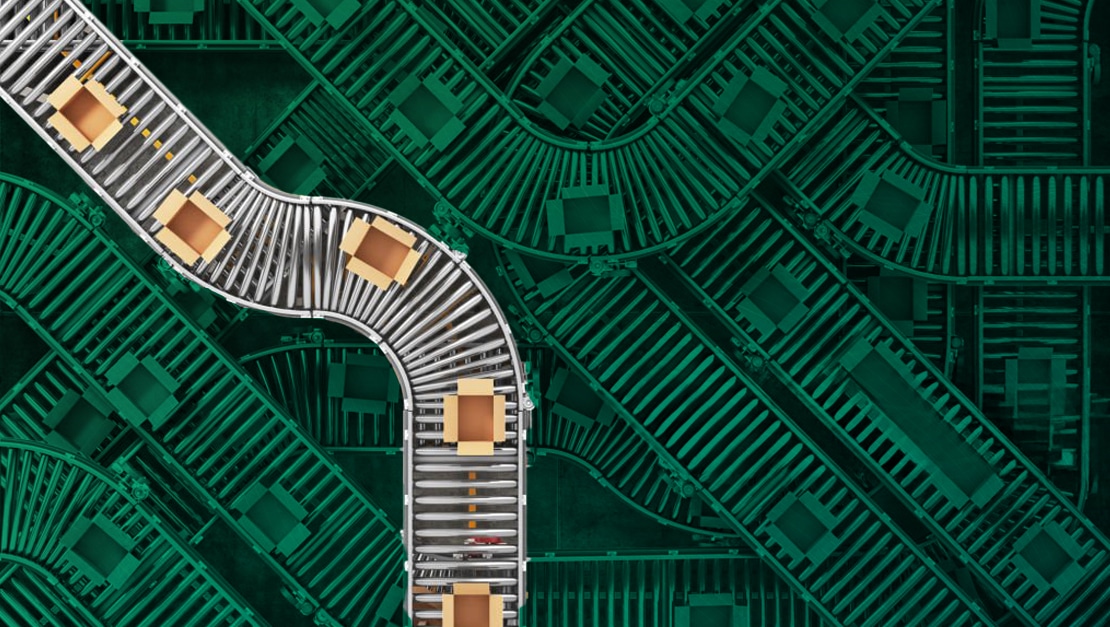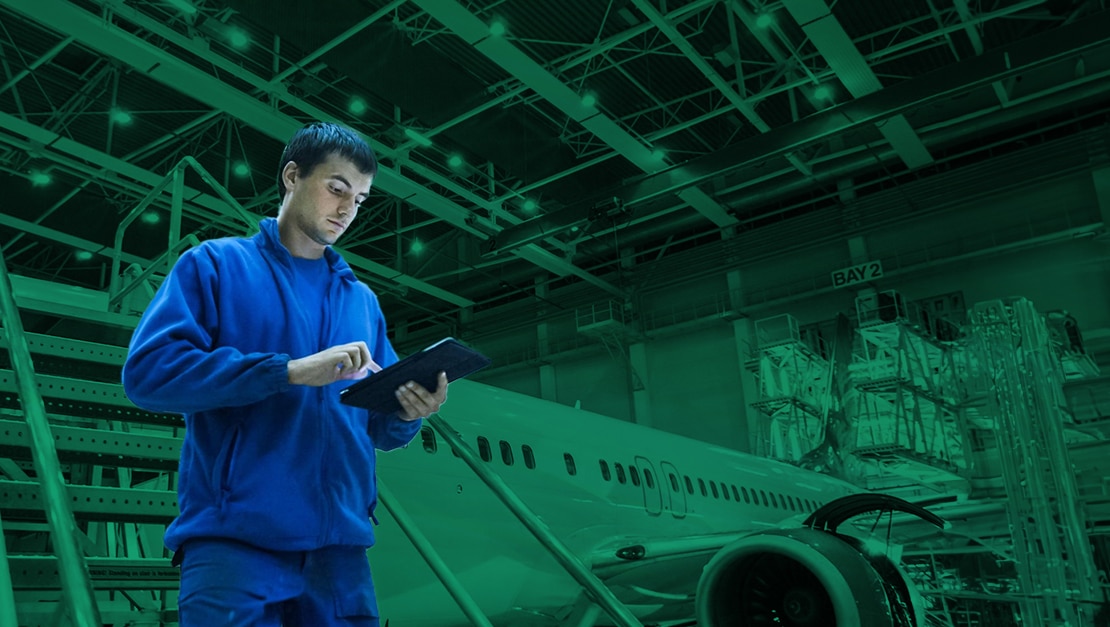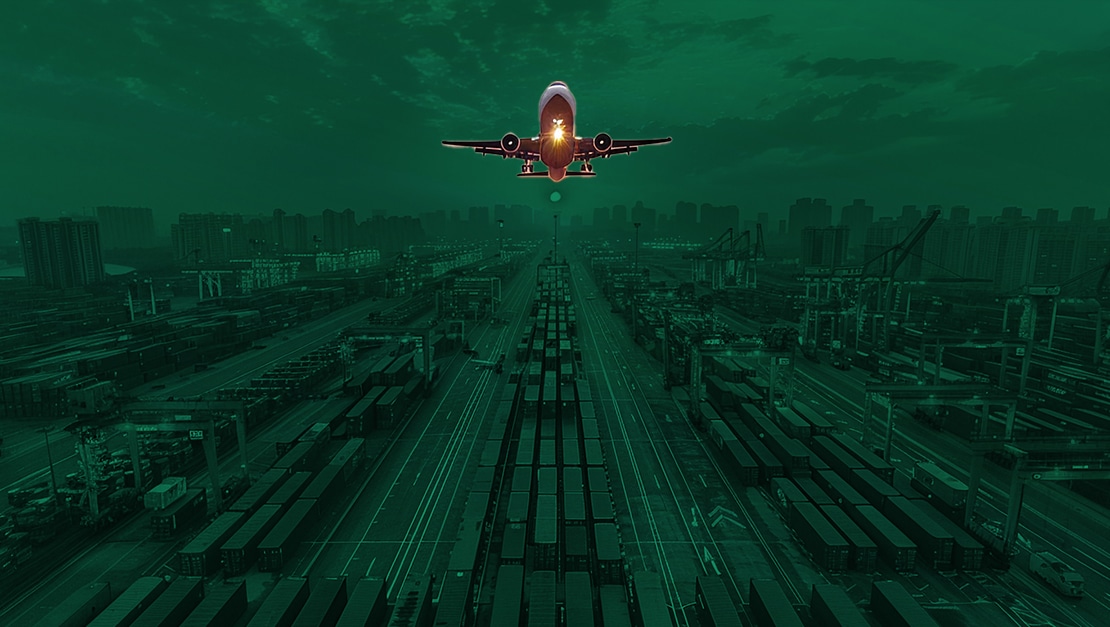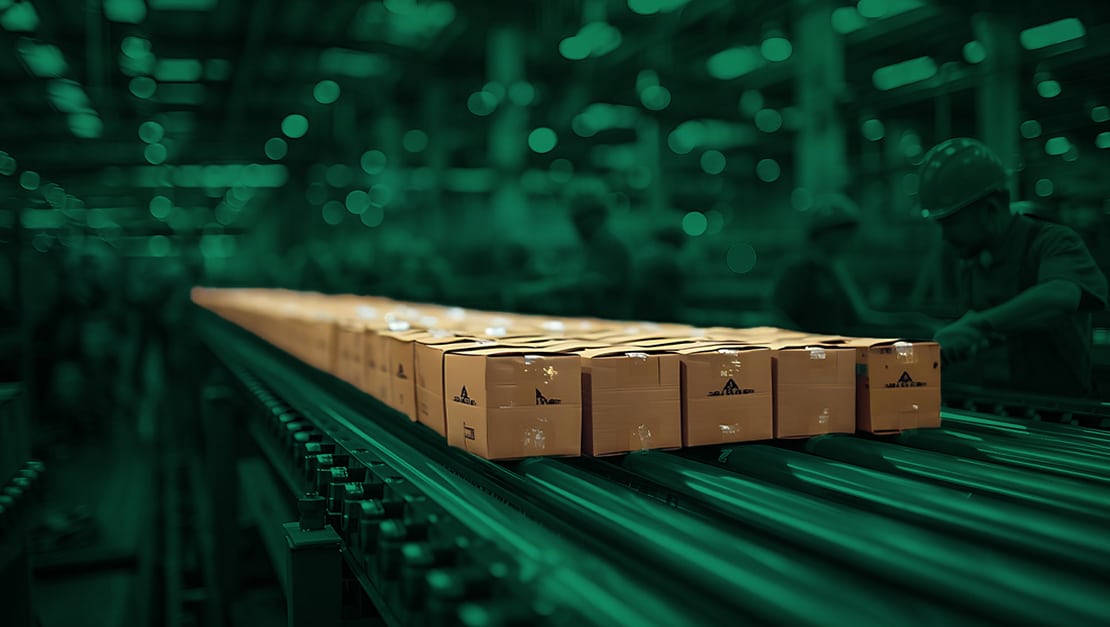Modern technologies have changed the way many industries operate, including logistics. With the use of tech like robotics, automation, and AI in logistics spaces, companies can streamline different operations related to managing inventory, warehouse storage, supply chain management, and more.
Logistics has always been an industry that benefited from technological advancements. From conveyor belts and forklifts to the introduction of more modern computerized production lines and robotics, automation in logistics has evolved significantly. Recently, artificial intelligence (AI) has become a main component of logistics, opening the door to new possibilities and making workflows more efficient.
In this blog post, we’ll look at the modern technologies at play in logistics automation, case studies of companies who have succeeded in implementing these new technologies, and how companies like aiOla are paving the way for further AI integration in logistics.
Key Technologies in Logistics & Automation in 2024
While there are always new technologies emerging that play a role in automations, there are a few that make up the core of logistics solutions. Below are the most common automation technologies companies are using today to make their logistics more efficient and reliable.
1. Robotics and Automated Guided Vehicles (AGVs)
Modern warehouses rely on robotics to automate repetitive tasks that are crucial to operations, like sorting, packing, and even transporting items. AGVs, while a type of robotics, have advanced enough that they can maneuver safely and efficiently through a warehouse with little to no intervention using predefined routes. Robots reduce the stress of manual and physical tasks on employees, enabling both to work together for more streamlined and safe workflows.
2. Drones and Autonomous Delivery Vehicles
Drones are being increasingly relied upon for last-mile delivery of smaller packages, especially in crowded cities where traditional delivery methods are subject to delays. Similarly, autonomous delivery vehicles are being developed, and they’ll be able to navigate roads and deliver packages without human intervention using sensors, cameras, and advanced AI algorithms.
3. Artificial Intelligence and Machine Learning (ML)
AI and ML technologies have been truly transformative in logistics. These technologies enable predictive analytics, help forecast demand, and optimize delivery routes. By analyzing huge datasets, ML can help companies plan their inventory levels according to accurate data. Not only that, companies can also optimize delivery routes based on multiple factors like traffic, vehicle availability, and capacity. Overall, AI and ML have a profound impact on decision-making by providing reliable and real-time insights into critical business data.
4. Internet of Things (IoT)
IoT devices play an important role in automating logistics processes. The real-time monitoring and tracking of goods using sensors and tags can help provide businesses with valuable data on the spot. Things like the condition and status of goods can be collected instantly and in real-time with IoT devices, helping manage and automate the supply chain and inventory levels. By monitoring the status of raw materials or goods, logistics teams can reduce the risk of running out of critical inventory while enhancing stocking efficiency.
Benefits of Logistics Automation
Automating logistical tasks comes with a lot of advantages. As an industry, automation logistics is set to grow at a CAGR of 10.2% by 2031, showing how more businesses are realizing the advantages of these technologies. With automation logistics, businesses can operate more efficiently by automating repetitive tasks, leading to fewer human-caused errors and better inventory and goods management. Let’s take a look at some of the benefits offered by benefits logistics on a more detailed level.
Enhanced Operational Efficiency
Tasks like order processing, inventory management, and tracking the movement of goods can be quickly streamlined through automation. Logistics automation software can use collected data to forecast demand to make informed decisions, while automated technologies like robotics and AGVs help reduce time and resources spent on things like sorting, picking, and transporting inventory, helping fulfill orders faster.
Improved Accuracy and Speed
AI and ML technologies can leverage data to optimize operations while simultaneously reducing errors, leading to fewer delays in deliveries. Additionally, Automating otherwise manual tasks reduces lead times, making it quicker and easier to manage workflows related to order processing and inventory movement. Improvements in speed and accuracy lead to better customer satisfaction, which can further contribute to reducing costs related to canceled or returned orders and inventory management.
Sustainable Scalability
Automation helps businesses stay flexible by taking on increased order volumes without drastically increasing resources, workforce, or budgets to match. This helps businesses scale more sustainably and adapt to evolving market conditions and customer demands. These automated systems can be adjusted to accommodate growth or higher volume during peak periods without adding stress to a business’s infrastructure.
Cost Savings
One of the most palpable benefits of automation in logistics is how it helps companies cut down on costs. This benefit comes from reducing the reliance on manual labor, minimizing costly errors, and improving uptime, production, and operations to increase profitability.
Logistics Automation Success Stories
Automating your supply chain, warehouse, or logistics operations isn’t a simple change that’s going to happen overnight. There’s a lot of work that goes into preparing your business to adopt these new technologies, but the benefits far outweigh the potential implementation challenges. Here are two case studies of well-known businesses that used new logistics automation technologies to improve their services.
Amazon Robotics for More Efficient Warehouse Logistics
One of the most widely-recognized companies, Amazon, relies on automation and robotics to transform its warehouse logistics. Without these technologies, the e-commerce giant wouldn’t be able to fulfill orders as quickly as it does. In Amazon’s warehouses, robots are moving inventory, handling heavy items, and fulfilling orders to make manual tasks less resource-intensive. The automated robots are helping reduce the time between getting an item from the warehouse to the customer by 50% while cutting down on human error and increasing productivity.
UPS Builds Flexible Supply Chain With Automation
Automation has helped UPS become more flexible in its warehouse logistics. Using a robotics system, GeekPlus, to quickly reorganize its warehouse, the delivery company saved countless manhours on processes that would have been repetitive and labor-intensive. The result was a warehouse system that could be deployed quickly, improving UPS’s customer satisfaction by enabling it to deliver orders more quickly and accurately. Additionally, UPS increased its peak unit throughput by 97% year-over-year thanks to this automated robotics system.
aiOla: Spearheading Logistics Automation Through Speech
One avenue where logistics and other industries aren’t focused on as much as others is speech data. The speech we use in daily processes, whether it’s communicating on a warehouse floor or inspecting machinery, can be used to extract meaningful data and trigger automations for quicker workflows. aiOla is filling that gap.
As an AI-powered speech platform, aiOla is breaking the barriers with a system that has the power to transform words into action. Understanding over 100 languages and different accents, dialects, and industry jargon, aiOla has the power to dramatically influence digital transformation in logistics. Using aiOla, logistics teams can accomplish a lot more in less time, such as:
- Cutting down inspection time to just seconds using speech
- Automating manual tasks by speaking
- Reducing human error and increasing productivity
- Creating a better customer experience by making logistics more efficient
- Collecting real-time data through speech for stronger decision-making
Through the convergence of multiple technologies like AI, ML, natural language understanding (NLU), and automatic speech recognition (ASR), aiOla is helping logistics teams streamline operations. For teams spread out over multiple locations and warehouses, aiOla helps collect and analyze speech data, stemming from any language, in one centralized space.
The Future of AI and Automation in Logistics
Looking ahead, thanks to evolving AI and automation solutions, the logistics industry is going to have ample opportunity to go through a significant transformation, rendering operations more accurate, sustainable, and efficient.
In the future, automation will likely help further reduce costs related to resources and labor, while working with employees to make work safer and easier, paving the way for them to focus on more creative and strategic aspects of the job. Technologies like AI, ML, and IoT are becoming more and more accessible, with systems like aiOla making it simple for companies of all sizes to benefit from innovative speech-powered logistics technology.
Book a demo with one of our experts to see how aiOla can help with logistics automation in your company.








